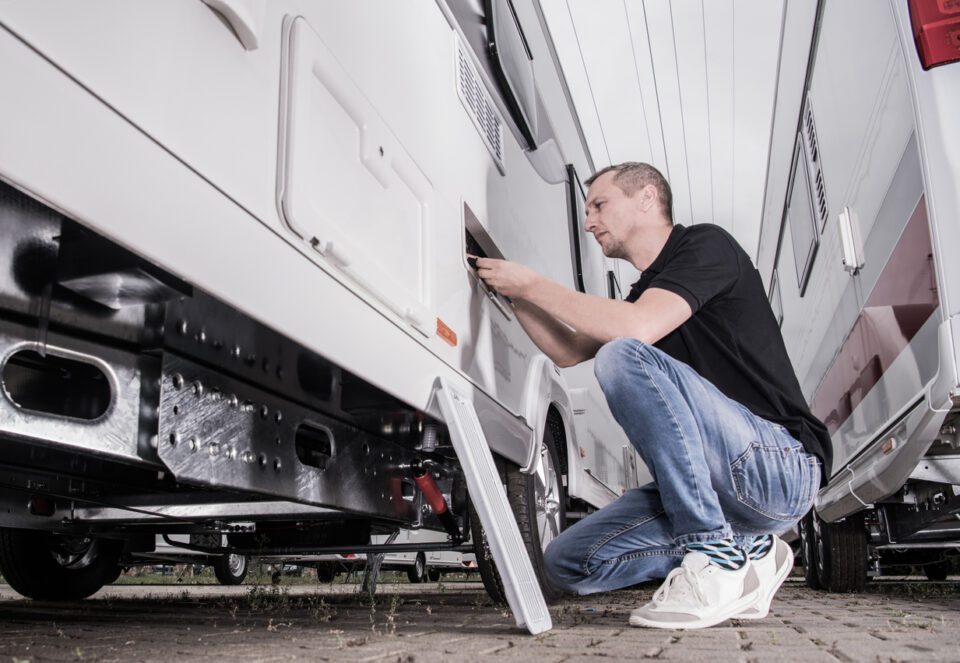Mastering RV maintenance doesn’t have to be overwhelming. Read this blog for a quick overview of RV servicing, maintenance, and repair. For precise guidance on maintaining your motorhome or travel trailer, refer to the manufacturer’s owner’s manual. It’s always advised to schedule an appointment with a certified RV service technician.
1. Maintaining Your RV Tires
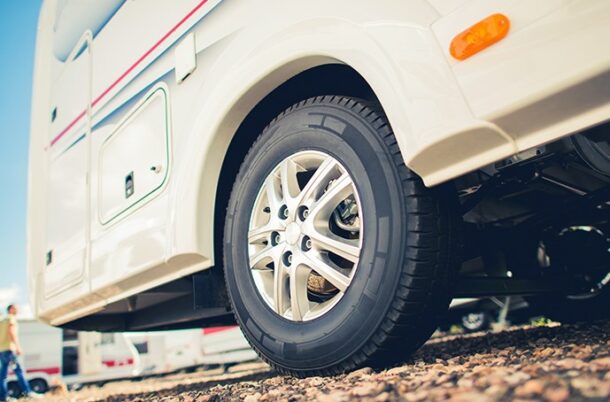
Ensure you care for your RV tires in the same way you would for your car’s tires. Utilize a tire pressure monitoring system to measure air pressure accurately. Conduct a visual inspection of the tires to identify any signs of uneven tread wear. Remember that incorrect trailer loading can result in uneven tire wear, potentially causing a blowout. Keep in mind that tire pressure can fluctuate due to changes in temperature and altitude. Learn the proper tire maintenance techniques for storing your RV, so you’re prepared for the upcoming camping season.
Before your trip, it’s essential to inspect your tire pressure and lug nuts. Tighten the lug nuts if needed and ensure that you inflate the tires to the recommended specifications.
2. Maintaining Your RV Roof
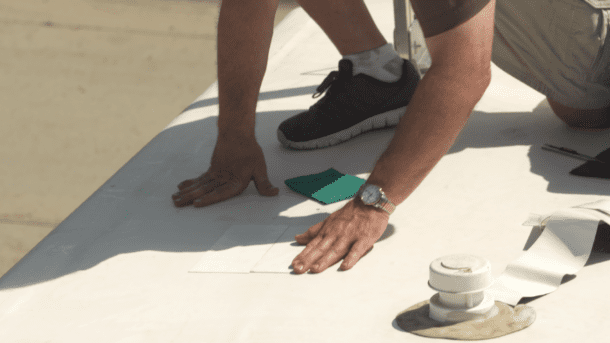
RV roofs endure significant wear and tear from harsh weather conditions like hail, sun, wind, and rain, necessitating regular inspections. If your RV has a factory-installed ladder, walking on the roof is safe, but without one, use a sturdy external ladder for side maintenance. Keep the roof clean by washing it with a mild solvent and water, especially if parked under sap-producing trees.
Inspect the roof seals and seams every six months to prevent costly water damage. Check for potential leak sources and apply sealant to protect against long-term water damage. If DIY inspection seems unsafe, consider hiring an RV maintenance service.
For rubber roofs, annual treatments safeguard against sun damage, while biannual roof inspections maintain its condition, preventing expensive repairs. Protecting your RV roof ensures its longevity and saves you from significant repair expenses.
3. Maintaining Your RV Generator
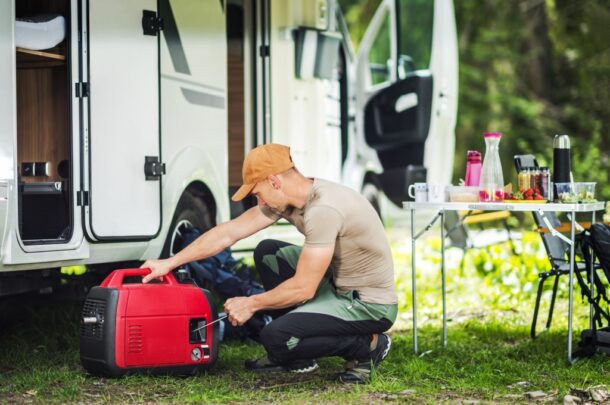
Maintaining your RV generator is a crucial task. Refer to the manufacturer’s guidelines for the recommended frequency of oil and filter changes. Neglecting this maintenance could result in costly repairs, potentially reaching up to thousands of dollars. It’s also important to run your generator periodically when your RV is in storage to prevent buildup on the carburetor, which can incur expenses of up to a few hundred dollars. Be sure to adhere to the scheduled servicing of your RV generator to avoid such expenses.
4. Maintaining Your Chassis and Engine
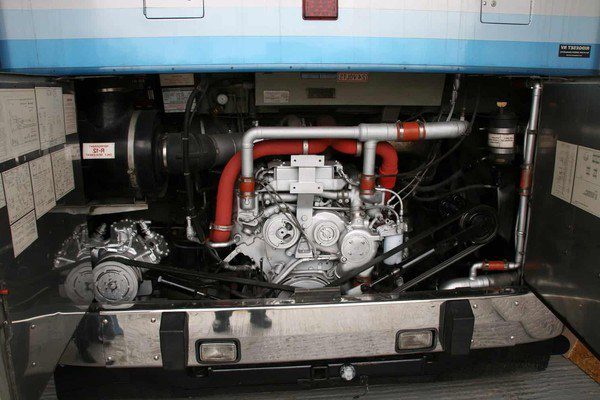
Similar to automobiles, RVs require regular oil and filter changes to ensure the proper functioning of the engine. Neglecting this maintenance could eventually lead to engine problems, potentially resulting in significant expenses. It is advisable to consult your owner’s manual for specific recommendations, although most manufacturers suggest an oil change every 3,000 to 4,500 miles.
Additionally, it’s essential to periodically replace the air, fuel, coolant, and hydraulic filters in your RV. Failure to do so may lead to increased fuel consumption, overheating issues in the cooling system, and oxidation in the hydraulic system, potentially causing damage that could be costly to repair.
Maintaining your RV’s brakes is crucial for your safety and the safety of others on the road. Brake issues could result in expensive repairs.
5. Maintaining Your RV Water Heater
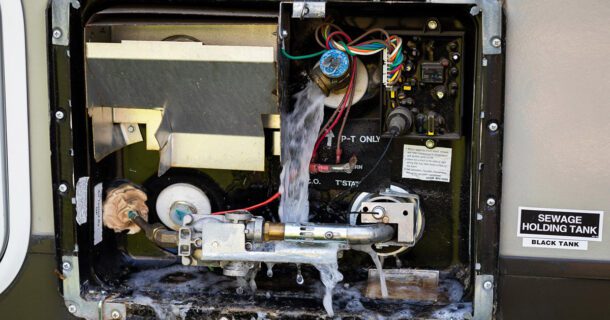
Periodically, it’s important to inspect your water heater to ensure the burner tube or chamber remains free from debris. Utilize compressed air to clear any accumulation. Additionally, assess the condition of the anode rod to determine if it requires replacement. Regular usage and outdoor storage can lead to sediment buildup, so make sure to rinse out any accumulated sediment.
6. Maintaining Your RV Awnings and Slideout Toppers
With time, awnings may experience damage, mold, and mildew if not maintained correctly. Before storing your RV, make sure to thoroughly clean your awning and allow it to dry before retracting it. Avoid leaving your awning extended in windy conditions, as this can harm its alignment and hinder effective storage. For detailed instructions on maintaining your RV awning, consult with a professional.
7. Maintaining RV Tanks
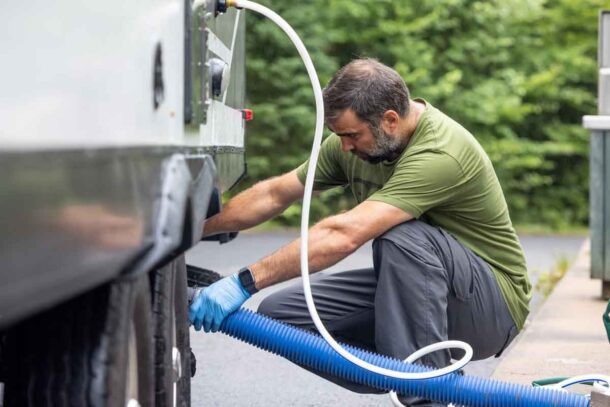
RVs typically have three holding tanks that require specific care:
- Freshwater Tank – Flush it bi-annually with a bleach-water solution to eliminate bacteria, especially when taking the RV out of seasonal storage.
- Grey Water Tank – Requires minimal maintenance but may develop odors over time. Consider using an odor blocker to prevent foul smells.
- Black Tank – Use approved chemicals to break down solids and utilize your RV’s black tank flush system for clean sensors.
Maintain your RV sewer system with biodegradable toilet paper and regular tank emptying to avoid backups. Invest in proper sewer connections and accessories for efficient disposal.
Learn More About RV Service and Repair Today
If you have questions about professional RV repair services, ask a truck and RV repair and maintenance company today!

